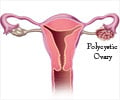The guideline is a global effort, resulting in an enormous resource with several suggestions and practice opportunities.
- With the updated 2023 guideline, Australian physicians and reproductive health specialists offer better insight in understanding, diagnosing, and treating Polycystic Ovary Syndrome (PCOS)
- In collaboration with international partners, Monash University has provided an evidence-based guideline to change how people approach Polycystic Ovary Syndrome (PCOS)
- The AskPCOS Patient App, was created to serve as a handy tool for every woman who is diagnosed or experiencing symptoms of PCOS
Highlights of the Updated Recommendations
Building on the 2018 international evidence-based guideline for the assessment and management of Polycystic Ovary Syndrome, the new guidelines have applied international best practice methods for evidenced review and guideline development. Diagnosis and treatment of PCOS remain challenging including defining individual diagnostic criteria, the influence of excess weight, ethnic differences and variation across the life course. This culminates in delayed diagnosis, poor diagnosis experience and dissatisfaction with care, as reported by women internationally.In this context, there is a compelling need for consistent international evidence-based guidelines for assessment and management of PCOS, addressing psychological, cardio-metabolic, dermatological and reproductive features of PCOS, promoting awareness and guiding research.
The new recommendations highlight that:
- PCOS should be diagnosed using the revised consensus Rotterdam criteria, which are now updated to evidence-based criteria
- Once diagnosed, assessment and management should address reproductive, metabolic, cardiovascular, dermatological, sleep and psychological features
- Depressive and anxiety symptoms are significantly increased and should be screened for in all women with PCOS, with psychological assessment and therapy as indicated
- Raised awareness and education is strongly recommended for women and healthcare professionals
- Weight bias and stigma should be minimized and healthcare professionals should explain weight-related risks to the patients
- Combined oral contraceptive pills are first-line pharmacological treatment for menstrual irregularity and hyperandrogenism, and a preference for lower dose preparations and those with less side-effects
- Letrozole remains the first-line pharmacological infertility therapy, with clomiphene alone or in combination with metformin (1✔ ✔Trusted Source
International Evidence-based Guideline for the assessment nd management of polycystic ovary syndrome 2023
Go to source)
AskPOCS: The Patient App
Accompanying the guidelines, there has been a development of the intuitive AskPCOS Patient App, which was created to serve every women affected with PCOS as a hand’s on consultation application. The app aims to help women with polycystic ovary syndrome (PCOS) find information of the highest quality from leading experts in this field.The application has around 33k users and 10.6k registered users currently over 183 countries. The app offers a discussion forum for women to discuss relevant topics within the growing AskPCOS community. It also offers a symptoms analysis feature to analyze tracked symptoms. This feature was developed to facilitate and support women when discussing their symptoms with health professionals. The application is easily available at Google Playstore (2✔ ✔Trusted Source
What is PCOS?
Go to source).
How Are These Guidelines Different From the 2018 Guidelines?
These new guidelines are more elaborate, inclusive and take into account the risk factors, implications, diagnosis and therapeutics of PCOS in a comprehensive manner. When compared to the previous 2018 guidelines, the new guidelines show a paradigm shift in the management and treatment of women with PCOS.The new guidelines, lay further emphasis on hormonal scrutiny and tests thus replacing ultra-sonographic criteria for solely diagnosing PCOS.
This updated Guideline debunks long-held stereotypes, notably those around weight and lifestyle, and seeks to support those with PCOS and reduce the stigma.
The National Health and Medical Research Council (NHMRC) Centre of Research Excellence in Women's Health in Reproductive Life (CRE WHiRL) and the Medical Research Future Fund supported the research.
References:
- International Evidence-based Guideline for the assessment nd management of polycystic ovary syndrome 2023 - (https://www.monash.edu/__data/assets/pdf_file/0003/3379521/Evidence-Based-Guidelines-2023.pdf)
- What is PCOS? - (https://www.askpcos.org/)
Source-Medindia










